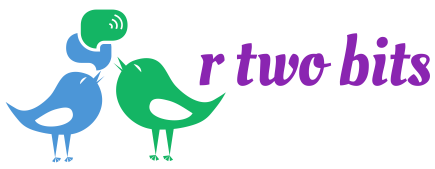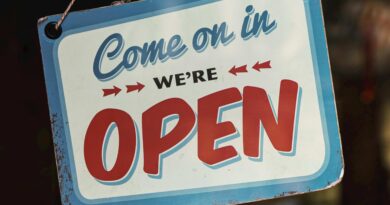Business isn’t ‘Just Business’
There are many pitfalls in starting and running a business, and they don’t end when you leave the office. You carry those to every part of your life. It’s both good and bad that men can be effective at compartmentalizing their lives. Sad to say, however, there is always some overlap, even if it’s only exhaustion. When things get really challenging, sometimes we do stupid things. I’ll raise my hand for this one. I allowed my business to overshadow my wife and family, and I somehow convinced myself I could manage it.
Once our business was on its feet, things were better from a number of hours at work than my previous job. But I was also engaged with work outside the office more than ever. Vacations were really just part-time work early each morning, so I never truly escaped. My wife really disliked the intrusions and my always being on call. I tried to explain the necessity of it all, but she wasn’t having it. I was tired of battles and tension everywhere; I wanted a sanctuary. At a vulnerable time I had a choice and I made the worst decision ever. I did the classically stupid thing and had an affair.
As a man who believed in family and life balance, why did I still work so many hours and have an affair? Had I totally lost my way? They were questions that demanded answers. Was it because of misplaced desires? If I’m honest, I can’t deny that. I recognized the work was too much, but I tried to offset that by dedicating myself to participating in all of my children’s activities. It was a rationalization of course, and did nothing to address the lack of quality time with my wife. In turn, that led to a lack of involvement and intimacy, which then turned into a nasty downward spiral for both of us.
Counseling taught me no matter our perceptions the responsibility for a failed relationship is always mixed; there’s plenty of blame to go around. I think we were both excellent parents but we were poor husband and wife. We dedicated all our energies toward work and children, with little left over for each other. For me, the stress of business and the time spent with the kids left me with little to no patience for the person I love most. Looking back, it’s fairly easy to say I took it out on her. From counseling I also learned about the negative and positive power of mirroring behaviors. We were stuck on the negative side, and that corkscrew seemed destined for a bottomless pit.
I don’t know why I didn’t propose counseling before it got too late to avoid the nastiness of divorce. Somehow it didn’t occur to me. I didn’t help anyone by stubbornly continuing an outside relationship that was never going to work. When it finally ran its course I woke up relieved. At that moment I was just glad to be alone.
Among the several things I regretted about the whole sordid situation was hurting my boys. I will never forget the night my oldest discovered I was seeing another woman. I was suddenly all of those terrible, middle-aged clichés I swore I would never become. I felt a tremendous amount of guilt for failing my family. It took some time and three therapists, but thank goodness my last one told me to get over it. He gave me permission to drop it. He told me my boys would forgive me once, but if I screwed up again with their Mom they would probably want nothing more to do with me. It was like suddenly being free of the Ancient Mariner’s albatross and knowing I simply needed to be true to myself and my beliefs.
There were lots of good tidbits I learned from my therapist – like “if it’s not yours, don’t pick it up,” or avoiding depression by not confusing self-worth with self-esteem, or simply the value of letting go. The best part was he led me to these epiphanies, but made me figure them out for myself.
I also took to heart the teachings of my son’s college football program. Instituted by the legendary coach Frosty Westering and continued by his son Scott at Pacific Lutheran University, it was a process of powerful self-realization. Combined with things I had learned from others, I realized I needed to re-apply myself to family and self. They were not separate.
The Emotional Bank Account
I was hard on my family and it’s odd to realize most of us are hardest on the ones we love. I had taken liberties with those relationships because I somehow thought our mutually strong emotional attachment freed us to some higher level of understanding. I learned the opposite is true – strong emotional attachment means more investment, more listening, more forgiveness, more empathy. It’s they to whom I need to give the greatest effort and make deposits in their ‘emotional bank accounts,’ as Stephen Covey wrote.
I love the account analogy because it’s so easy to grasp. It’s also hard to practice. We all have an emotional bank and everyone we meet either makes a deposit or a withdrawal. When I started working on making deposits to those I loved, I found when it came time to make a withdrawal, like disciplining my children or teaching some type of lesson, they were much more likely to hear me. Because I had actively listened, empathized and not judged, our relationships grew more open and honest. And they actually listened more to me. At least, that’s my perception.
I believe most people want to do the right thing, and I want employees to know I trust them to do the right thing. That’s why I sometimes use the phrase about giving people ‘autonomy and enough rope to hang themselves.’ I don’t mean that in an entrapment kind of way. I mean it in a trust kind of way; of learning what kind of people we have, how they respond to adversity and how they fix decisions that don’t turn out well. I also let people know when I cut them loose on a task I’m here to help, to mentor. I want them to know we trust them, but they were not alone and should learn to use every resource available to them.
When they come to me, I also try to teach a fundamental decision process. It’s the ‘three best options.’ I find any time I am at a decision point, either for a project, a customer, or a boss, I need to present and define three and only three solutions or options. Less than that doesn’t provide flexibility and proves I wasn’t thinking creatively. More than that shows I didn’t do enough homework to understand the core of the issue. Three options gives my decision tree space, yet is narrowly focused enough to allow for quick evaluation and decision. Best of all, coming up with that third option often requires out of the box thinking, which is always good.
It might be more expensive initially to trust employees like that, but in the end they usually prove worthy of the trust. It’s a mutually beneficial outcome because in the long run their capabilities grow and the company advances.
Like everyone, I tend to avoid those who withdraw more from my emotional bank account than they deposit. Feeling good about our selves can be a fragile commodity. There are so many ways and reasons why we should fail at whatever we undertake, and there are literally thousands of people and messages telling us every day why we are not special, and therefore, not capable of special things. This negatively that so often surrounds us is why I love the quote from Alan Turing, often credited as the inventor of the modern computer: “Sometimes it is the people no one can imagine anything of who do the things no one can imagine.”[1]
[1] Hodges, Andrew, Alan Turing: The Enigma. Walker & Co., New York, 2000.




